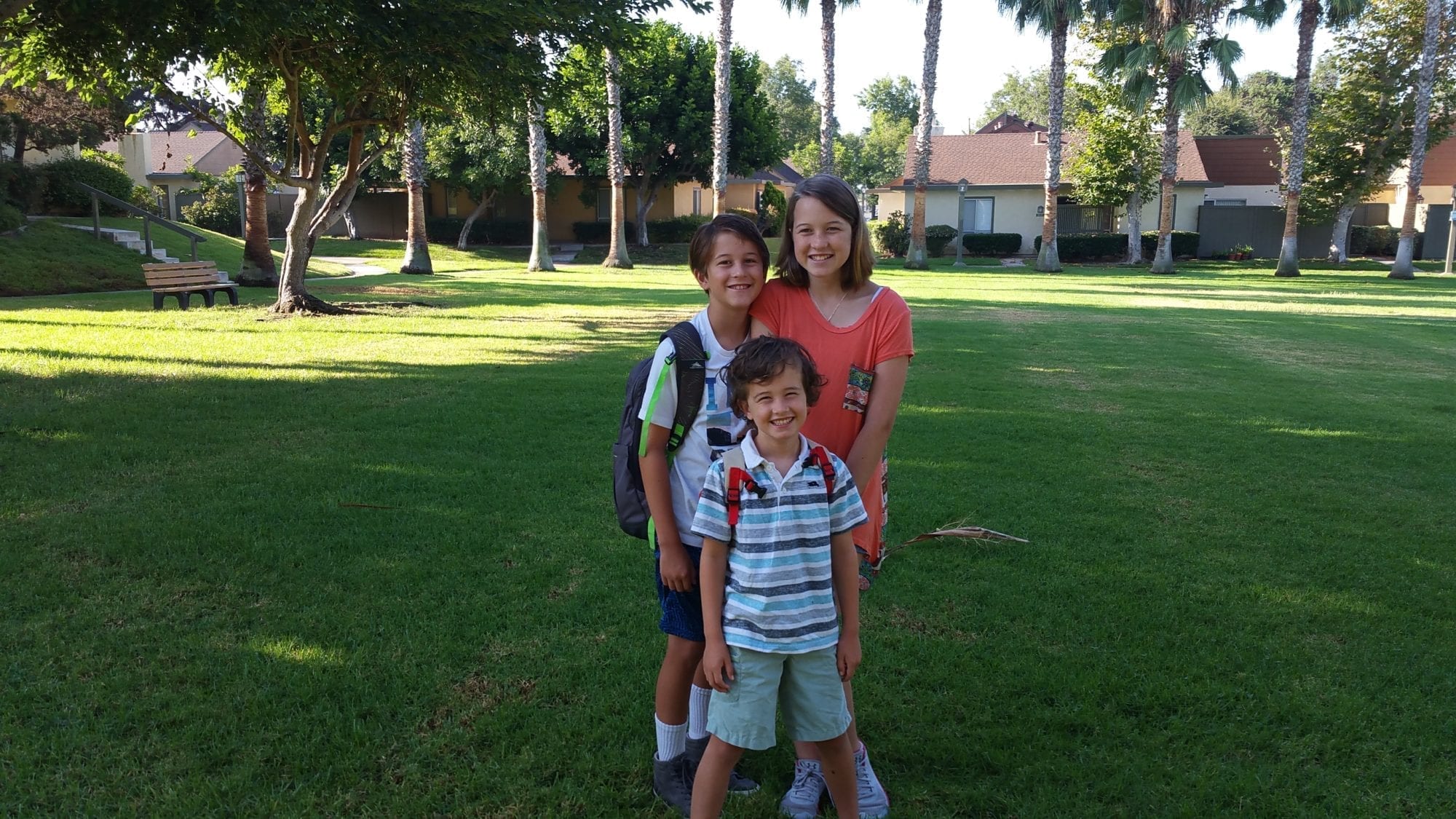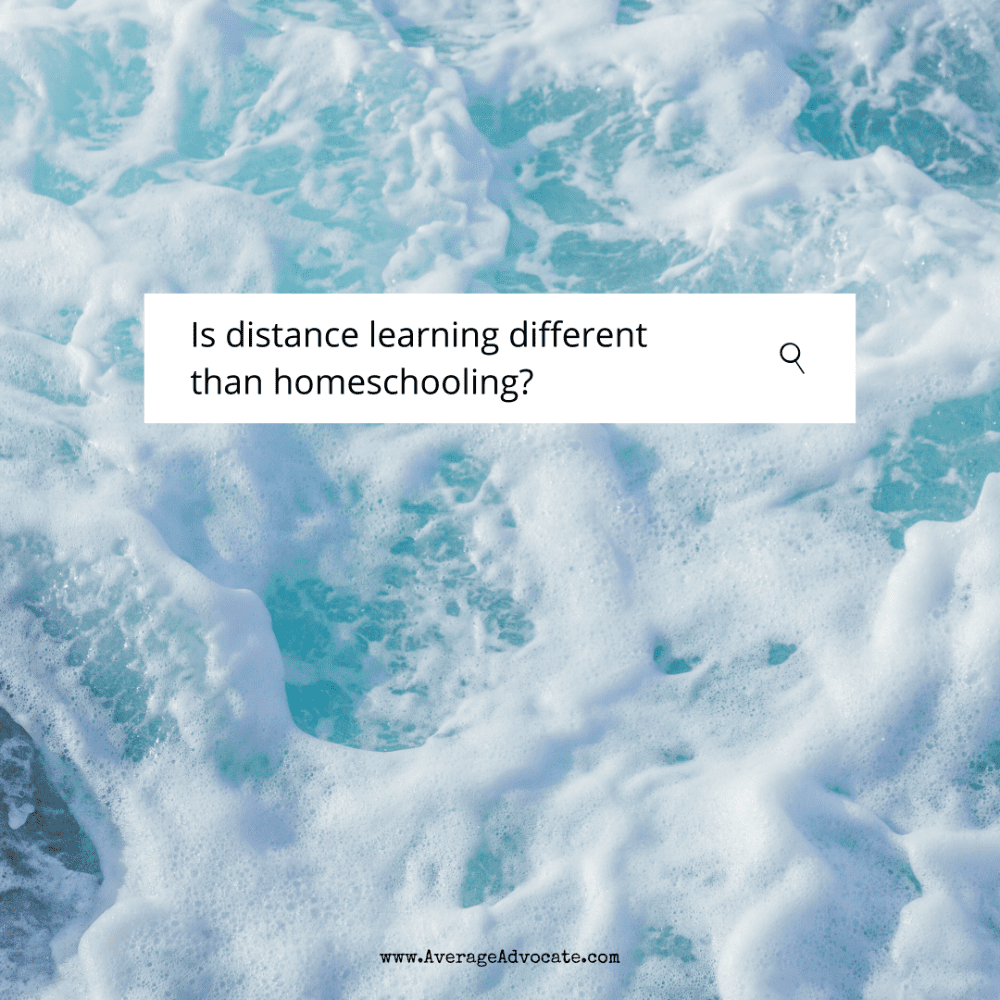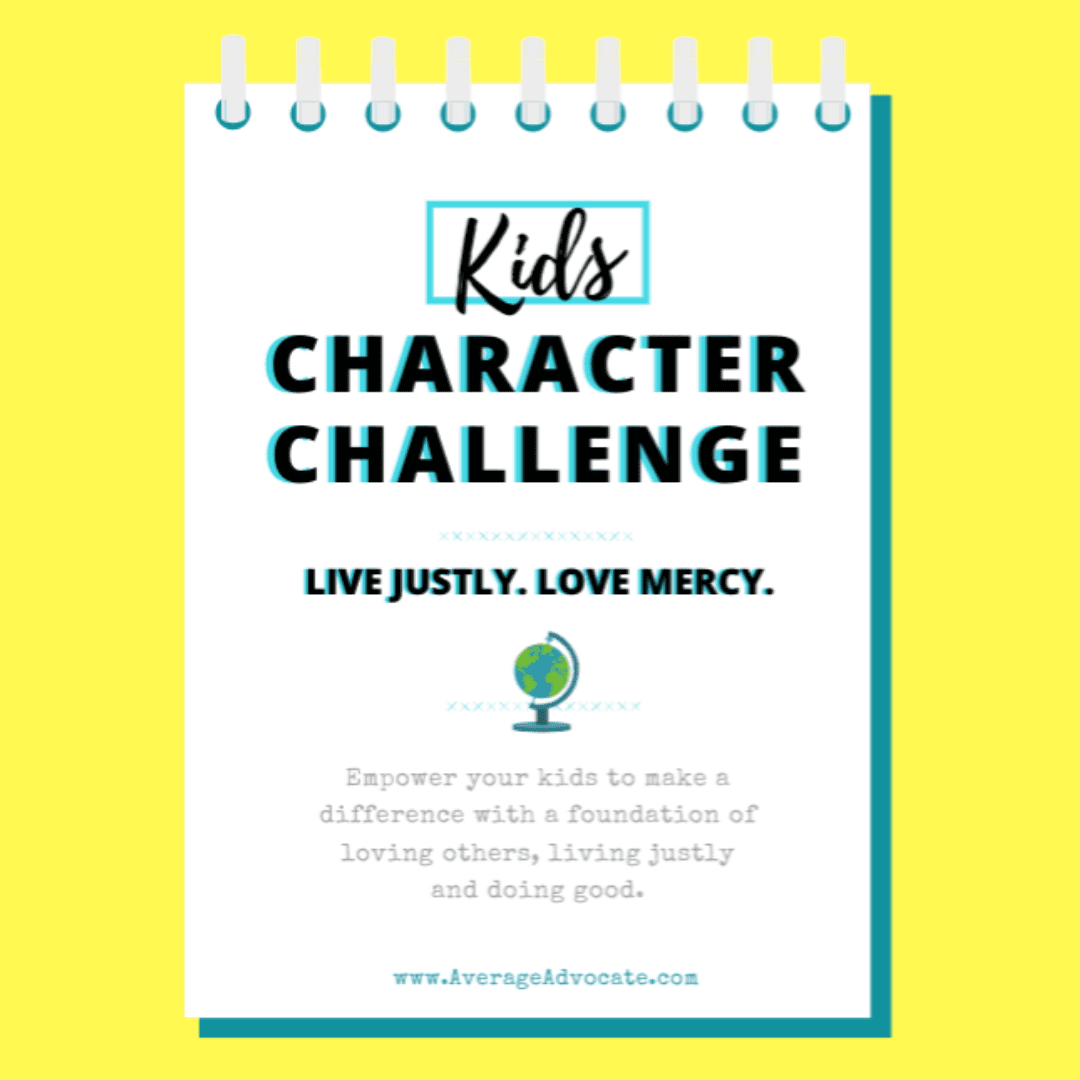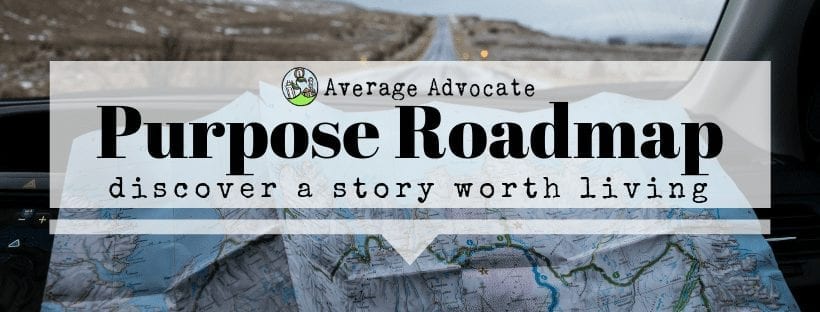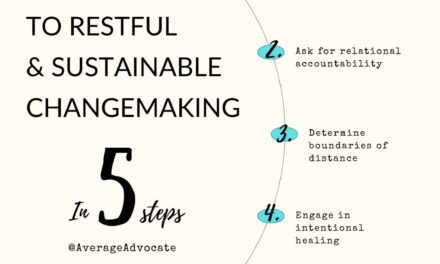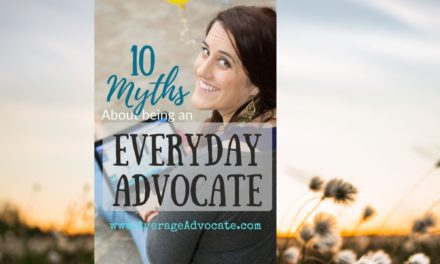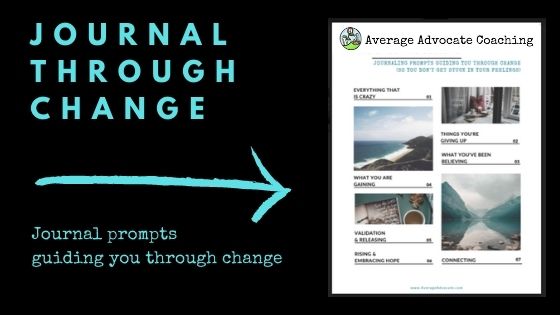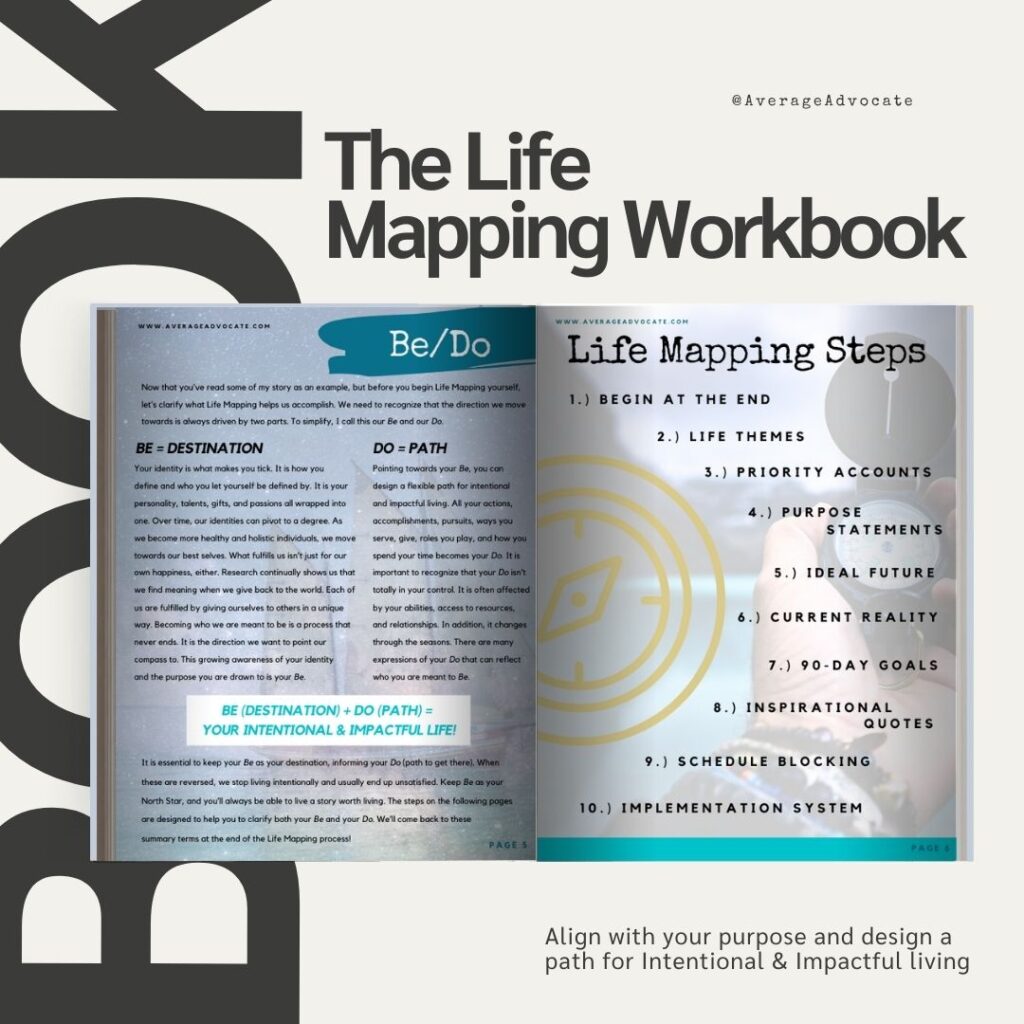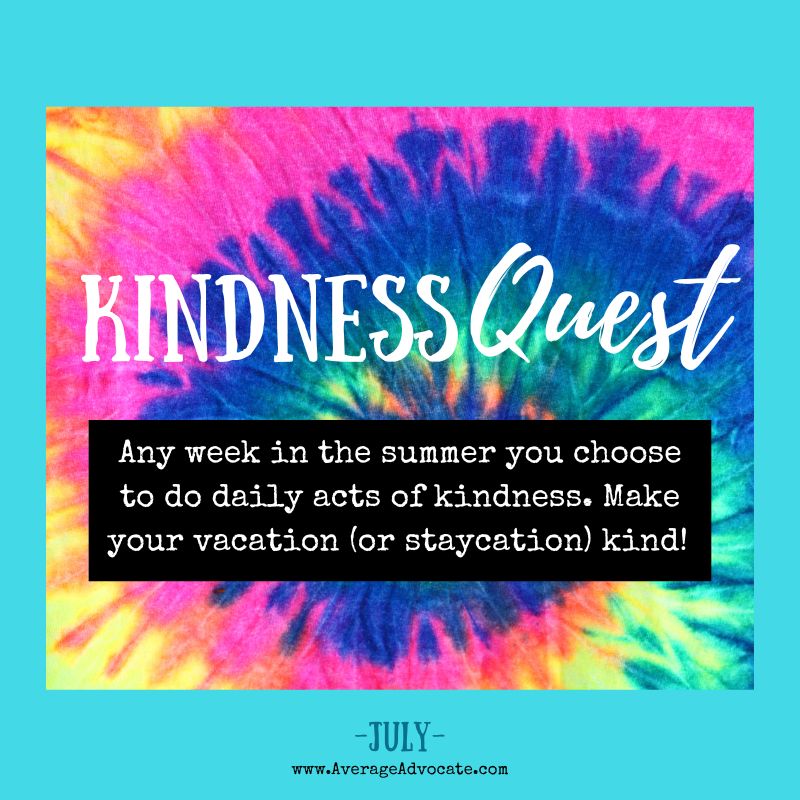If you’ve been schooling at home this Spring or considering homeschool for next year because of COVID-19, I am excited for you. And a little scared. As Dickens says, “It was the best of times. It was the worst of times.” One thing for sure is that you have a lot of influence to make a difference in your kid’s life! That is why I want to share with you seven things I wish someone told me before I started homeschooling.
Ironically, although I homeschooled for almost four years, I have never written a blog post about it! It wasn’t that I didn’t have a lot to say about homeschooling. It was simply that I didn’t believe that talking about it would really empower the Average Advocate tribe as many of you aren’t homeschoolers. But that has changed a lot in these past few months, as many parents here are trying to figure out the best way to school at home.
Homeschooling or Homeschooling at Home?
Before you decide to homeschool though (or jump onto a hybrid combo) please take the next three minutes to look at these differences between homeschooling and distance learning. Why? Because my friend, these types of at-home-home-learning are not the same and I feel like it is vital for you as the parent to understand why.
Here is the post I wrote on Medium about it: So You Think You Are Homeschooling During COVID-19!
Ten Things I Wish I Knew Before I Started Homeschooling
I am no expert, but I can definitely help you avoid some of the things it took me years to learn as a homeschooling parent. (Actually, I am pretty sure some of you who are reading this helped me figure out how to homeschool–I’m really just passing on everything you taught me! Thank you!) So sit back and get ready to apply.
1.) Figure out your long-game
One of the best exercises I was given (a year after I began homeschooling) was to write out what I hoped my kids would be as adults. Would I want them to be leaders? Simply be a working member of society? In this exercise, we also determined the end goal of different education systems (public schools, private, charters, curriculum). Figuring out my end game made it much easier to choose which method of education would work best to achieve that goal.
2.) You are your child’s primary teacher
Although you’ve checked out this post, the difference between schooling-at-home and homeschooling, even if you decide to opt for a form of distance-learning (no shame, I’m planning on doing a hybrid) you will probably get eaten alive by stress and your kids if you don’t act and excuse authority from your pores that you are your child’s primary teacher.
When my daughter, in second grade, began frequently telling me that her teacher said xyz, so I must be wrong, etc… that was when I knew we needed a change. Since then I homeschooled and have done hybrids. However, in all of that, our home-language became clear that if another teacher has authority in my kids’ lives, it is only because I grant it to them. Other teachers are partners in my learning objectives for my kids. It means my middle-schoolers now don’t complain when I tell them we are doing a science project or memorizing a poem when it isn’t school. They know overall, I am still and always their primary teacher until they leave the house. And that is in their best interest.
(Even if it is putting up a tent)
View this post on Instagram
3.) Create an environment where your child will want to learn
Toggling back-and-forth between public schools and charter schools and full-at-home homeschool (and different combos in-between), at some point, this became my primary question. Some other homeschooling moms told me they take it a year or even semester at a time. Doing this really helped me reduce the guilt of moving my kids around, because the object was always to find an environment that was best for my child.
If I realized one of my kids wasn’t learning well in an environment, we finished are short commitment, and moved on. After four years, we settled on a project-based, small-classroom charter school (which is like a dream that went sour when COVID-19 hit). However, even looking into Fall I have a pretty good idea of how to do schooling-at-home in different ways to help each child have an environment where they will WANT to learn.
A book I recommend to any parent questioning how to best educated their child is You, Your Child, and School: Navigate Your Way To The Best Education by Sir Ken Robinson. (He also has some good TED Talk videos about creativity in education). But his main premise is this: Do whatever is in your power to do to create an environment where your kid wants to learn.
I know COVID-19 has made it feel like we don’t have very much power in this, but that just isn’t true. If you can at least start by observing your kids and using this principle to guide in whatever type of education style you choose this Fall.
4.) Decide to not care about everything
Some things aren’t worth caring about. For examples, I don’t care about cursive, but I taught my son cursive because that was the best way for him to learn to write. I push typing, because my daughter would get stressed by state testing (on computers) and I think they’ll need that in this day-and-age. I push my son in math because every occupation he has been vaguely interested in has a deep math-base. And although I am very pro-women in STEAM fields, my daughter has never shown any interests or strengths in these fields, so I push her in what she does have strengths in, like creativity, leadership, and business.
My cousin was recently telling me that where she lives, in France, preschoolers must memorize poetry to pass grade level. Here, our state guidelines are built on other values. They are designed by what someone somewhere thinks will produce a productive member of society. You have permission to not care about them. Let that stuff go. Prioritize what will matter for your kids. (Which could include a test, but it might not.)
5.) Skipping out on the emotional, spiritual and mental health isn’t worth it
When I first began homeschooling I was always burdened by hitting all the academia. I was afraid my kids wouldn’t be up-to-par with their public-school students. I almost missed out on the most vital aspect of schooling at home (and parenting): academia has nothing on emotional, mental and spiritual health.
I would get frustrated when we would get sidetracked for an hour with a breakdown. I found myself having to teach my daughter how to cope in healthy ways with anxiety before finishing our math lesson. Often it would seem we were forever behind, pushing some school work off to the next day to deal with a conflict between kids or some heart issue. Eventually, though, this became my primary purpose when my kids were at home. Here I could prioritize giving my kids a healthy framework for life, morals, relationships, our faith and mental-well being. My kids weren’t learning to shove it or manage it. They were learning to work through and overcome.
Over time, I learned what most parents do: kids are all at different levels and teaching to standardized testing isn’t always what our kids need. By the time my older kids hit upper elementary (and now middle school) and I realized they can quickly learn what they missed if they know how to learn. Adults who thrive aren’t the ones who have college degrees. Adults who thrive are those with wisdom, high EQs, social-emotional strength, well-developed morals, and know how to tap into their source of life.
6.) Be intentional about living justly and loving others
Notably, my daughter learned about periods for the first time in Target with an audience of shoppers. And at the same time, she also learned about girls around the world who can’t go to school because of menstruation (whom she wanted to help). I always expected to have conversations like this with my kids, but I assumed many of them would come later. However, most of the time the opportunity to begin teaching them about current social justice issues came up much earlier than I expected–years before middle school. Kids want to be given a framework for right and wrong, good and bad. Often, our efforts to shelter them from bad and keep them innocent longer, backfires and we miss our best opportunities.
In the same way, kids begin modelling the way we treat others and respond to things like the homeless man on the street. When we started doing our summer road trip Kindness Quests and using the Intentional Acts of Kindness checklist, it blew my mind how much more of an opportunity to be intentional I had that I had been missing. Although we weren’t mean to people before, and still went out of our way to love others, kids have a great capacity for thinking of others we can leverage.
Most parents want their kids to grow up to be loving, kind and live justly. But we actually have to do this with them if we want them to grow up to embody this culture. Whether it is living justly on social issues like human trafficking, slavery, racism, abuse, food poverty, etc… or loving your community through acts of kindness, use this time!
(If you need help, I create resources to help you, like the the Kids Character Challenge, Intentional Acts of Kindness checklist or contact me about Conversations with Your Kids About Modern Slavery)
7.) Community is vital
This one is brief, but do whatever you can to get into a community of like-minded kids and parents. Life cannot be lived alone. I realize with COVID-19 this is a challenge. But don’t give up on setting up Zoom calls for art, joining co-ops or softball clubs when you can, or even just meeting on six feet apart blankets outside with masks. Whatever you do to build community will be worth it for everyone else’s sanity.
(You know the weird homeschoolers? Ya. Those are the ones who didn’t have a community.)
8.) Give yourself all the grace
Really. GRACE. Enough said.
9.) How to leverage your children’s strengths and weaknesses
My daughter memorized a ton of geography (she has wanderlust). My son loves building with Legos. For him, physics and coding are a piece of cake. My youngest loves exploring the world with science. Climbing trees is his favorite.
Your child will want to spend most of their time doing what they love to do.
Guess what? They will probably need help, though, in whatever they don’t like doing. I quickly learned what they needed extra help in, and you probably will too.
What I didn’t know initially, though, was how to work with this. It took me a while to begin merging what they dislike with what they were strong in. I also needed to give myself permission to view unconventional learning methods as valid. Could a doctor’s appointment actually be transformed into a school day? What could make a trip to the grocery store educational? What subjects were I weak in teaching that I should outsource to my spouse, other parents, a tutor or have them sign up for a class in?
It turned out that having my son practice counting while doing jumping jacks helped him count. Forget classroom worksheets! Having my daughter figure out logical concepts in the context of creativity or on adventures greatly helped her focus. Having my son do writing projects on power-point about technology made it worthwhile for him to write.
In addition, figuring out aspects of my children’s personalities and learning styles was empowering. My kinesthetic learner needed tactical experiences to learn. One child processes externally, so they need a lot of time to talk through ideas (we often do that while driving, cooking or taking walks). Some of my kids must have a checklist and a plan at the beginning of the day. One prefers to do everything on their own and won’t tell me if they are feeling bad. I have to check-up on them to make sure they are not internalizing all their problems.
The more we understand our children’s strengths and weaknesses the more we can help them as they learn.
10.) The Most Important Thing I Wish I Knew Before I Began Homeschooling is…
But more than anything else I wish I knew, it would be knowing–no, believing–that I could do it. That it was actually possible and good. Having kids around all the time can be overwhelming (especially if you are working). And the greater culture doesn’t set parents up with confidence if they opt out the public school system. That sense of doubt, fear of failure, and overwhelm can become great.
This is what my parents always told me, though:
“God made you your kids mama, Elisa. He could have given your kids to any other set of parents but he didn’t. He gave them to you because you were the right combination of parents for them. Don’t you think he can equip you to be the best advocate for your kids?”
Sure, we can’t protect our kids from all the crap going on in the world. COVID-19 has shaken our children, and we won’t be able to shelter them from all suffering. Nor am I saying we can do this on our own or that we should reinvent the wheel of education.
But as the parent/caregiver, you are your children’s most important relationship, guide and teacher. Honestly, I am so thankful for my years homeschooling because they taught me how to parent. And maybe, as I told you these ten things I wish I knew before homeschooling, maybe it will empower you to make a difference in your own home with greater ease. I for one, believe you can do this.
______________________________
If you think you might opt for homeschooling this fall instead of distance learning, check out the difference here. In addition, the Kids Character Challenge is a great homeschool resource if you want to help your kids live justly and love others.
[wd_hustle id=”7″ type=”embedded”/]

